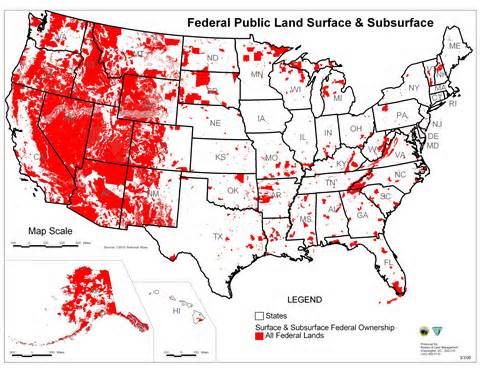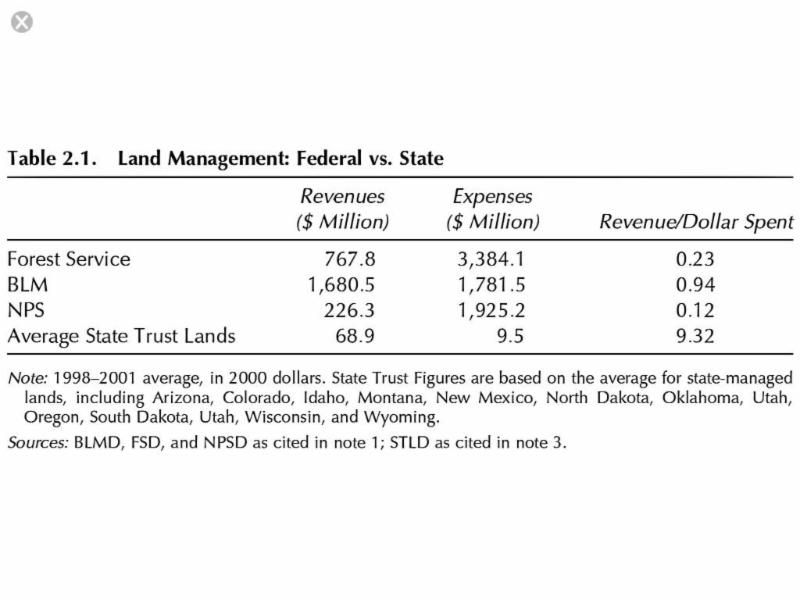Originally Posted By: dogcatcherHow can it even be a states issue, the land was ceded to the Federal government by Mexico? The Federal government has owned it since Mexico ceded it.
It gets pretty complicated without people smarter than me here to explain.
But, if what I said before about the Constitution and the limited powers defined in it, as well as the real property defined as allowable to be owned by the federal government, is adhered to, then the following is applicable.
First, if you look at the western states, HUGE portions of it are public lands. Within those states boundaries lie the public lands.
Here is a map so that everyone can have a "visual".

OK, now looking at the public lands in red, one can see the vast amount of lands under federal control right now. Pretty big isn't it?
In the Western U.S. those public lands make up huge percentages of the states where the lands lie. Nobody can argue that fact. In fact, if you add up all the public lands for the U.S. that number would come out to be about 40% of ALL land in the United States. That is a fact. The remaining 60% of the land is private land.
Now, let's get back to what the U.S. Constitution allows the federal government to own and defines it's powers in Art.I Sec.8.
That red area in the map isn't what is defined in the Constitution. In fact, it says that what is not allowed by the Constitution is otherwise reserved for the STATES.
Follow me so far?
Now if the federal government claims ownership and jurisdiction over ALL that red area, it means that the federal government essentially OWNS those states where the majority, or even a large percentage of public lands within it's state boundaries. And that means that in reality, there would be only TWO states in the United States. The state that the Government owns, and the state that the private citizens own. This is in violation of the U.S. Constitution, and the public lands held in trust are in effect owned by the sovereign states of which public lands are held within it's boundaries.
For the federal government to own so much of so many states it would create a very strong Central Government.
If Congress could unilaterally alter or diminish the very terms of statehood, states would cease to be states and would become mere administrative subdivisions of an all-powerful national government.
NOBODY wants the federal government to be that big, or have that much power... Well. Maybe Obama and his liberal minions do.
5 Western states have passed legislation to reclaim the public lands within their boundaries, and several more are working on such legislation now. And not just out West. All over the U.S.
More reading here:
http://landandlivestock.wordpress.com/2013/10/10/public-lands-held-in-trust/





